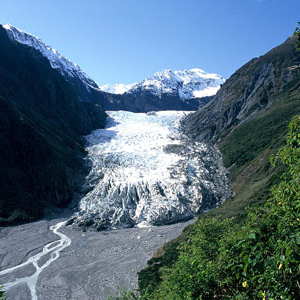Glaciers give mixed response to Ice Age questions
 Climate change may not always be a global phenomenon, or at least not a uniform one.
Climate change may not always be a global phenomenon, or at least not a uniform one.
Scientists are calling for a better understanding of regional climates, after research into New Zealand's glaciers revealed a changing climate in the Northern Hemisphere does not directly affect the climate in the Southern Hemisphere.
Researchers at the University of Queensland say a generalised global approach is not the solution to climate issues.
The New Zealand glacier study showed that future climate changes can impact differently across the two hemispheres.
It has uncovered evidence that significant glaciers in the mountains of New Zealand survived at the end of the last ice age – a time when other icy areas were retreating.
“This study reverses previous findings which suggested that New Zealand's glaciers disappeared at the same time as ice in the Northern Hemisphere,” UQ researcher Professor Jamie Shulmeister said.
“We showed that when the Northern Hemisphere started to warm at the end of the last ice age, New Zealand glaciers were unaffected.
“These glaciers began to retreat several thousand years later, when changes in the Southern Ocean led to increased carbon dioxide emissions and warming.
“This indicates that future climate change may impact differently in the two hemispheres and that changes in the Southern Ocean are likely to be critical for Australia and New Zealand.”
The study used exposure dating of moraines - mounds of rocks formed by glaciers - to reconstruct the rate of ice retreat in New Zealand’s Ashburton Valley after the last glacial maximum – the time when the ice sheets were at their largest.
The researchers found that the period from the last glacial maximum to the end of the ice age was longer in New Zealand than in the Northern Hemisphere.
They also found that the maximum glacier extent in New Zealand occurred several thousand years before the maximum in the Northern Hemisphere, demonstrating that growth of the northern ice sheets did not cause expansion of New Zealand glaciers.








 Print
Print